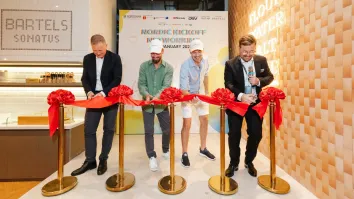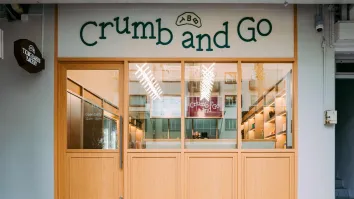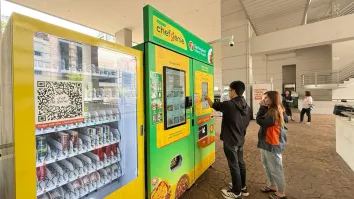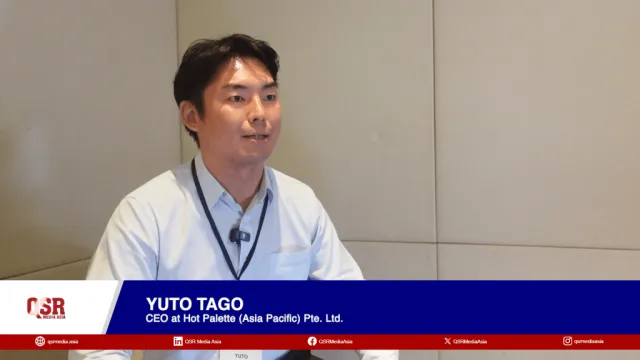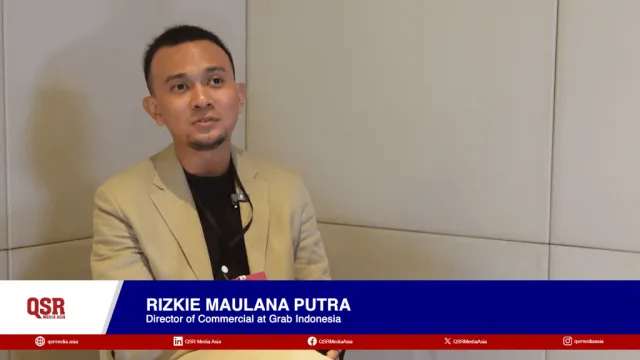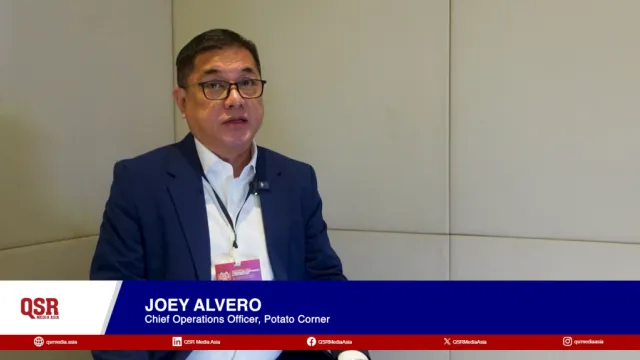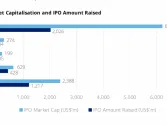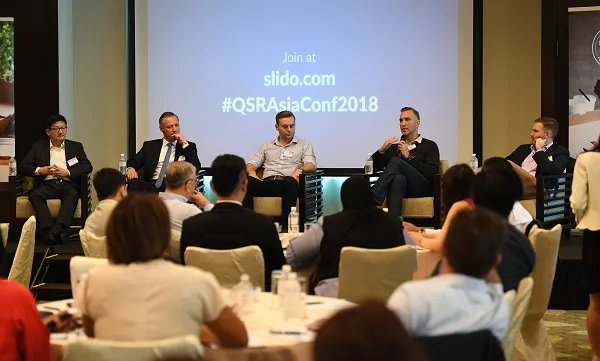
Can single-unit owners survive the franchising war?
Operators are slammed with uncertainty and increased volatility.
In a panel that brought together five players from QSR brands situated in different regions, Subway APAC regional director Pavel Dorosevich elaborates on the increased volatility that is becoming the norm of the industry. He said that those who choose to invest into QSR brands will be subjected to the same volatility even if they find strong long term players who are also on a long term journey. In several markets where rents are high, he cited that the term of Subway’s leases are getting shorter and shorter. “We're seeing that single-unit ownership of the Subway franchise is not a sustainable model. Even with the strong supply chain backing the owner, we cannot guarantee that the owner can weather the crisis. That's why we see the future of franchise brands relying more on multi-site owners.”
“You have to become portfolio player. You have to weather crisis for a year or two-year long. Even if you're dealing with a two or three year lease. For the franchisees, make sure that you are doing the right choice and make sure that you are playing a long term game. You have to have a plan,” he added.
In markets like Japan, Taiwan, Korea, Singapore, and Hong Kong with high GDP per capita, the Subway brand relies heavily on owners-operators or people who buy the franchise. In India and China, Subway is fully reliant on financial investors. “Only 10% of those people who own our franchise operate our stores. For most of our franchisees, Subway is a financial investment. The challenge is how we convince those people to continuously invest and re-invigorate the Subway brand, whereas in the more developing markets, it's quite natural to them. They have to stay up to date because that's how they survive and flourish. But in less developed markets, we have to talk a very different language.”
KFC Asia’s general manager Richard Wallis also noted the importance of finding an alternative business model to enter some markets such as Indonesia. “For KFC, that has been the core menu. We have 15-20 products in a limited menu and that’s half of the overall menu. But we made sure that it’s very focused on the core of the brand.”
KFC debated the idea of modifying the original recipe chicken to the local taste of a certain country but found that the best outcome is to be clear about what the products stand for and find a way to make it relevant in the market without necessarily changing the recipe. “If you start moving too far away from the core, it tends to impact how the brand is perceived. So even though we have a different range of products throughout the region, original recipe chicken is a core one for us,” he added.
Focusing on the Singaporean QSR landscape, 4Fingers’ CEO Steen Puggaard noted that Singapore is trailing the US and Australia but is also ahead of other markets in Asia. Landlords are increasingly compensating for the closures of retailers by flipping space into F&B which creates lower supply of space, whilst the government of Singapore wants to keep the workforce in F&B because the industry is overemploying but under-contributing to the GDP.
He sees that delivery companies are creating bigger share of revenue but not providing much incremental consumption but with an added variable cost for operators. The structure of market is shifting in a really big way. “When we see e-commerce in Singapore kicking in, we're going to see another round of closures for supermarkets. I think the opportunity for us is to take very thorough and honest look at the relevance of not just our brands and proposition to consumers, but also the relevance and sustainability of the cost structures that we have. The opportunity is on how we re-adjust, re-align, re-calibrate, and re-invent our brands all the time to make sure that we're matching the way people spend money and the way landlords are filling up their molds.”
Trends and Challenges in the Market
Regarding trends in the market, Focus Brands SVP Ken Chen noted that China went from zero outbound tourism to 122 million trips in 2016 and 127 million trips in 2017. With the phenomena slating to persist, there is an opportunity for the QSR brands to benefit from consumers’ spending in China. “Since the internet is developed in China, people write and read reviews. If your brand does well amongst Chinese tourists, that's an opportunity for your brand to go to China. In the negative side, we also see the impacts. When there was a tourism boycott from China to Korea last year, we felt it. In 2016, there were 8 million trips from Korea to China. But last year, it went half to 4 million. Our incomes are badly impacted.”
Dorosevich of Subway says that they’re seeing a lot of emerging economies in Southeast Asia, bringing in new people into new consumer classes. “There are not much consumers to convert into Subway customers and the challenge is retaining our consumers for years and years. How do we stay relevant to their changing preferences as they transition to one point of their life to another? That's another challenge.”
Guzman y Gomez Singapore general manager Josh Bell says they’re now exploring some loyalty platform providers and different CRM technology to access more information about their customers. “We've had a bit of luck with some of our delivery partners getting some basic level data, but we'd also like to know the hotspots – where Mexican has been searched the most in Singapore – to help a bit with our real estate strategy. In terms of gathering data, there are so many channels to explore. Gathering is easy but the challenge is digesting it. How do you digest so much data and how do you put it to work?”
4Fingers’ Puggaard believed that people might need home delivery, but they may not need delivery companies. Right now, for $3, consumers get a lot of aggregation, convenience, and speed. And the rest, the bulk of the cost for fulfilling this, comes from our revenue. “We want to understand the end game of delivery companies because right now, it's not sustainable. What we need to find is an alignment of interest around a sustainable and profitable model that monetises the premium consumers' place on convenience. We'd like for consumers to pay a much fairer share of that convenience. There will be no drones in Singapore because of security, there will be no driverless cars because of the price of COE, so we can't get stuck by a demand that we can't fulfill properly.”





